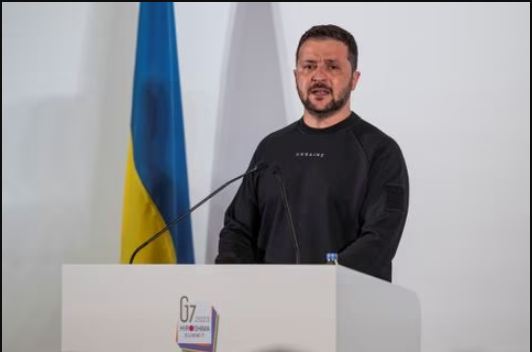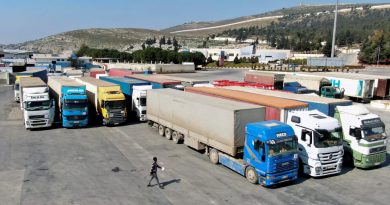Ukrainian Anti-Graft Police Search Home of Top Presidential Aide
Kyiv — A developing political storm tests Ukraine’s leadership amid ongoing wartime pressures
The home of a senior presidential aide in Ukraine was searched by national anti-corruption agencies, a move that has intensified political tensions at a sensitive moment for the country.
Officials confirmed that the residence of Andriy Yermak, the influential head of the Presidential Office, was searched as part of an investigation linked to ongoing anti-graft efforts.
Yermak acknowledged the search and said he was fully cooperating with investigators, stressing that he had nothing to hide and would support all legal procedures.
The agencies involved stated that the operations were formally authorised, though they did not disclose details about the specific accusations under review.
The search comes on the heels of a major corruption probe earlier this month, which targeted alleged financial misconduct within the state atomic energy sector.
Investigators recently revealed a case involving an alleged kickback scheme worth around $100 million, implicating former officials and associates connected to earlier administrations.
As the country continues to navigate wartime challenges, the rising number of corruption cases has added pressure on the government to demonstrate accountability.
Yermak, a long-time associate of President Volodymyr Zelensky, has held a pivotal role within the administration since before the 2019 presidential campaign.
He has not been named as a suspect, yet political opponents argue that his influence demands heightened public scrutiny.
Members of opposition parties and some voices within the ruling bloc have previously called for changes in senior leadership as political tensions deepen.
Friday’s search is expected to sharpen those debates, particularly as Ukraine faces external pressure related to ongoing negotiations for a potential peace framework.
Washington has recently presented a draft proposal to Kyiv outlining broad parameters of a possible agreement, sparking internal debate over whether the terms would necessitate territorial compromises.
The situation has placed Yermak, who leads Kyiv’s negotiating delegation, at the centre of criticism over transparency and strategic direction.
Opposition groups argue that discussions around the country’s future must be broadened, with calls for clearer communication to all political factions.
One prominent opposition bloc urged the presidency to engage in open dialogue, saying the nation required full clarity on negotiation limits and non-negotiable principles.
They argued that top-level decisions should reflect collective input,given the significant national implications of any peace arrangement.
The political backdrop remains tense as Russian forces continue to push across several sections of the front line, claiming advances near strategically important areas.
Reports indicate that Russian troops are nearing the city of Pokrovsk in the east, which would mark a major territorial gain if confirmed.
Moscow has also commented on the recently leaked 28-point peace outline, describing it as a possible basis for future talks under its own conditions.
Russian leadership is insisting on the withdrawal of Ukrainian troops from contested regions, positioning that demand as a prerequisite for any potential ceasefire.
Ukraine’s negotiating team, however, has publicly rejected the idea of territorial concessions, reiterating that national sovereignty remains non-negotiable.
Yermak himself recently emphasised that no proposal requiring Ukraine to surrender territory would be accepted, reflecting the broader government stance.
Political observers in Kyiv suggest the search may weaken Yermak’s standing, with speculation that significant changes could soon follow within the negotiating team.
Analysts note that, in wartime, public trust in key officials is vital, and any appearance of misconduct can reshape political dynamics quickly.
Several commentators described the moment as a significant setback for the aide, raising questions about whether he can maintain his position amid intensifying pressure.
Despite the uncertainty, government officials continue to underline the importance of due process, stating that ongoing investigations reflect Ukraine’s efforts to strengthen transparency and rule of law.
For many citizens, the incident serves as a reminder of the government’s broader anti-corruption commitments, which remain a key priority alongside national defence.



